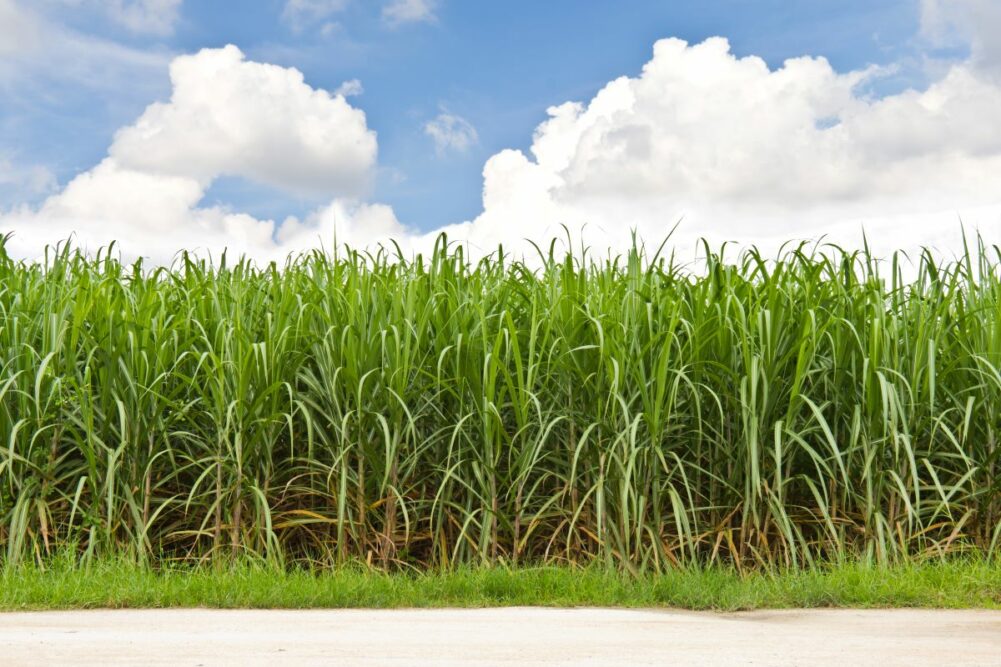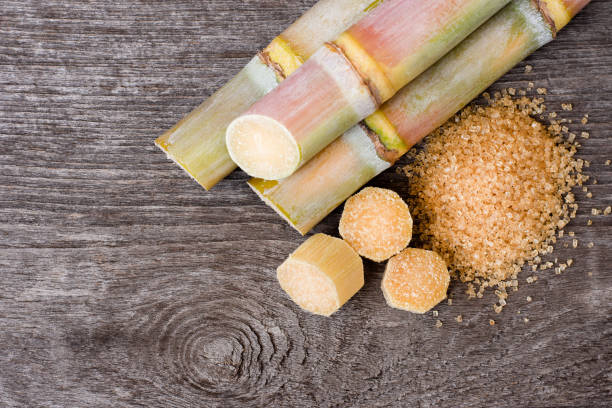A Closer Look at Sugar and Cane in the Global Food Industry
Wiki Article
Why Walking Stick Sugar Handling Chemicals Are Crucial for Modern Sugar Refining
The duty of cane sugar processing chemicals in modern-day sugar refining can not be overemphasized, as they are important to improving both the efficiency of extraction and the overall high quality of the end product. Agents such as phosphoric acid and particular flocculants are used to get rid of pollutants, leading to sugar that not only satisfies customer assumptions however additionally abides by market standards. Nonetheless, the implications of these chemicals expand beyond quality, touching upon market characteristics and ecological factors to consider. This increases vital inquiries concerning the sustainability of such methods and their effect on the future of sugar production.Role of Handling Chemicals
The efficacy of walking cane sugar handling hinges dramatically on the strategic application of handling chemicals. These chemicals play a pivotal function in boosting the effectiveness and quality of sugar removal and refining. From the initial phases of juice removal to the final filtration steps, handling chemicals promote numerous critical procedures.In the removal stage, chemicals such as phosphoric acid and calcium hydroxide are employed to optimize the information process, aiding to remove impurities and suspended solids from the walking stick juice. This not just boosts the yield however also makes sure the clearness of the final item. Additionally, representatives like flocculants help in the quick settling of contaminations, therefore streamlining the overall process.
As the handling developments, chemicals are used in decolorization and crystallization stages. Triggered carbon and ion exchange resins serve to remove color and odor, guaranteeing that the refined sugar fulfills consumer high quality criteria. Eventually, the function of processing chemicals expands beyond operational performance; they significantly affect the sensory characteristics of the last product, adding to market competitiveness. Thus, the thorough selection and application of these chemicals are important for attaining optimum outcomes in cane sugar processing.
Secret Sorts Of Chemicals
Walking cane sugar handling relies on a variety of key chemicals that facilitate each stage of production. These chemicals play essential roles in making clear, whitening, and cleansing the sugar removed from walking cane.One main category of chemicals includes flocculants, such as polyacrylamide, which help in the clarification procedure by promoting the aggregation and settling of impurities. In addition, calcium hydroxide is usually utilized to counteract level of acidity and assist in the removal of non-sugar components.
Lightening representatives, such as activated carbon and sulfur dioxide, are utilized to decolorize the syrup, causing a clearer final item. These chemicals aid remove shade compounds that may affect the sugar's appearance and marketability.
Moreover, phosphoric acid offers as a pH regulatory authority during the handling phases, making certain ideal conditions for the chemical activities entailed in sugar removal and purification.
Various other important agents consist of edta (ethylenediaminetetraacetic acid), which chelates metal ions that can catalyze unwanted responses, and sodium hydroxide, which aids in pH control throughout the refining process. Jointly, these chemicals boost performance and make certain a top notch walking cane sugar item.
Benefits for Sugar High Quality
Commonly neglected, making use of specific processing chemicals significantly improves the total high quality of cane sugar. These chemicals play a critical duty in refining procedures, making certain that the end product meets rigorous industry criteria for pureness and taste.
In addition, refining chemicals assist in accomplishing a consistent granulation and appearance, which are essential for customer acceptance. By regulating the formation procedure, these chemicals guarantee that the sugar crystals create evenly, leading find here to a more attractive item that dissolves well in different applications.
Furthermore, making use of these chemicals can boost the life span of walking cane sugar by lessening dampness absorption useful reference and microbial growth. In general, the tactical application of processing chemicals is essential for supplying high-quality cane sugar that fulfills consumer assumptions and market demands.
Ecological Influence Considerations

In addition, the energy-intensive nature of sugar refining, worsened by chemical use, commonly causes raised carbon discharges. This adds to climate adjustment and raises issues relating to the sustainability of existing refining techniques. Furthermore, the sourcing of these chemicals might include techniques that endanger biodiversity, such as monoculture farming, which minimizes the resilience of agricultural environments.

To mitigate these effects, sugar refiners are increasingly exploring sustainable alternatives and adopting finest practices that decrease chemical use. Carrying out rigorous ecological management systems can help guarantee that the refining procedure lines up with ecological criteria and promotes biodiversity. investigate this site Inevitably, a balanced technique that focuses on both sugar high quality and ecological stewardship is important for the long-lasting stability of the sugar industry.
Future Fads in Refining
As the sugar market comes to grips with the environmental challenges related to standard refining methods, cutting-edge techniques are arising to enhance both performance and sustainability. One significant pattern is the fostering of green chemistry concepts, which prioritize the usage of non-toxic, naturally degradable handling chemicals. This change not just lessens ecological influence however also addresses customer demand for cleaner manufacturing techniques.One more encouraging development is the execution of sophisticated filtering technologies, such as membrane layer separation and adsorption procedures. These techniques boost the quality and quality of the sugar while minimizing the quantity of wastewater created throughout refining. In addition, the combination of electronic innovations, including IoT and AI, is changing operational performance by making it possible for real-time surveillance and predictive maintenance, therefore minimizing source waste.
Additionally, the usage of spin-offs from sugar refining, such as bagasse and molasses, is acquiring traction. These products can be transformed right into biofuels or value-added products, adding to a circular economic climate within the market. Collectively, these fads indicate a shift in the direction of more lasting methods that not only improve operational effectiveness however additionally straighten with international sustainability goals, making certain the future viability of sugar refining.
Final Thought
Walking cane sugar handling chemicals are important in contemporary sugar refining, dramatically improving the effectiveness and quality of sugar removal. The critical use of these chemicals not just enhances the purity and flavor of the end product but additionally ensures regular condensation and texture. As the market increasingly focuses on sustainability, the fostering of environmentally-friendly handling agents is likely to form future fads in refining, eventually causing better items and expanded service life for consumers.
Ultimately, a well balanced approach that prioritizes both sugar quality and environmental stewardship is vital for the lasting feasibility of the sugar sector.
Cane sugar processing chemicals are crucial in contemporary sugar refining, dramatically improving the performance and quality of sugar extraction.
Report this wiki page